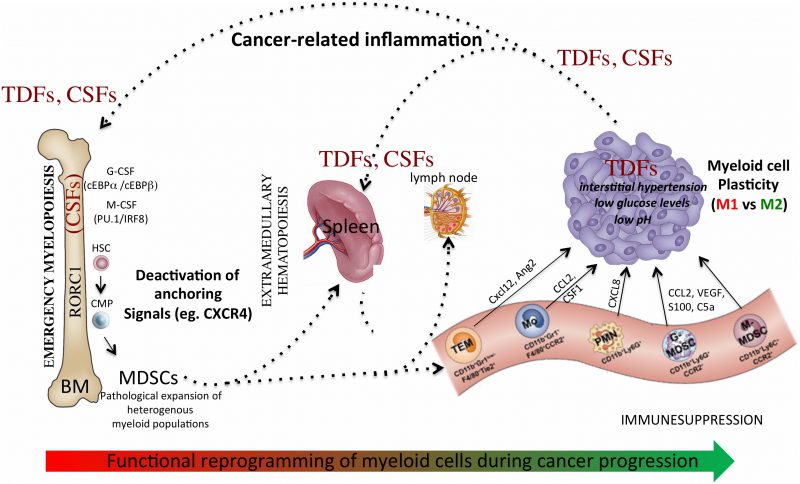Back to article: Myelopoiesis, metabolism and therapy: a crucial crossroads in cancer progression
FIGURE 1: Myeloid cell reprogramming in cancer: a dynamic multistep process. Cancer-related inflammation promotes emergency myelopoiesis through production of colony stimulating factors, such as macrophage-colony stimulating factor (M-CSF), granulocyte-colony stimulating factor (G-CSF), granulocyte-macrophage- colony stimulating factor (GM-CSF). The transcription factor RORC1 is a key mediator of this myelopoietic response in emergency. Deactivation of anchoring signals, such as the retention axis CXCR4/CXCL12 promotes mobilization of myeloid cells to periphery and allows their accumulation to lymphoid organs, as well tumor tissues. Recruitment of myeloid cells into the tumor microenvironment expose these cells to additional signals and conditions that further boost their functional reprogramming towards a tumor-promoting phenotype. CSFs – Colony-stimulating factors, TDFs – tumor-derived factors, TEM – TIE2-expressing monocytes, PMN – polymorphonuclear cells, Mo – monocytes, MDSCs – myeloid-derived suppressor cells.

